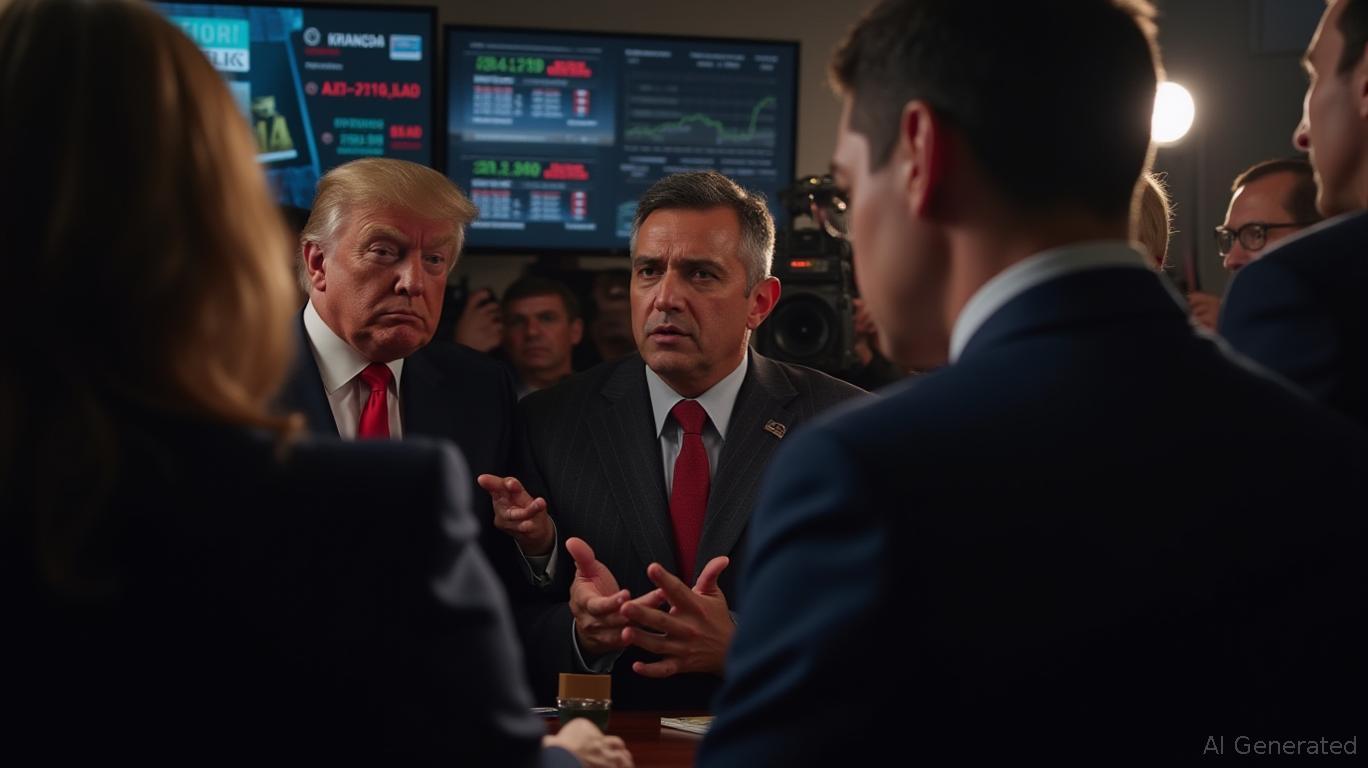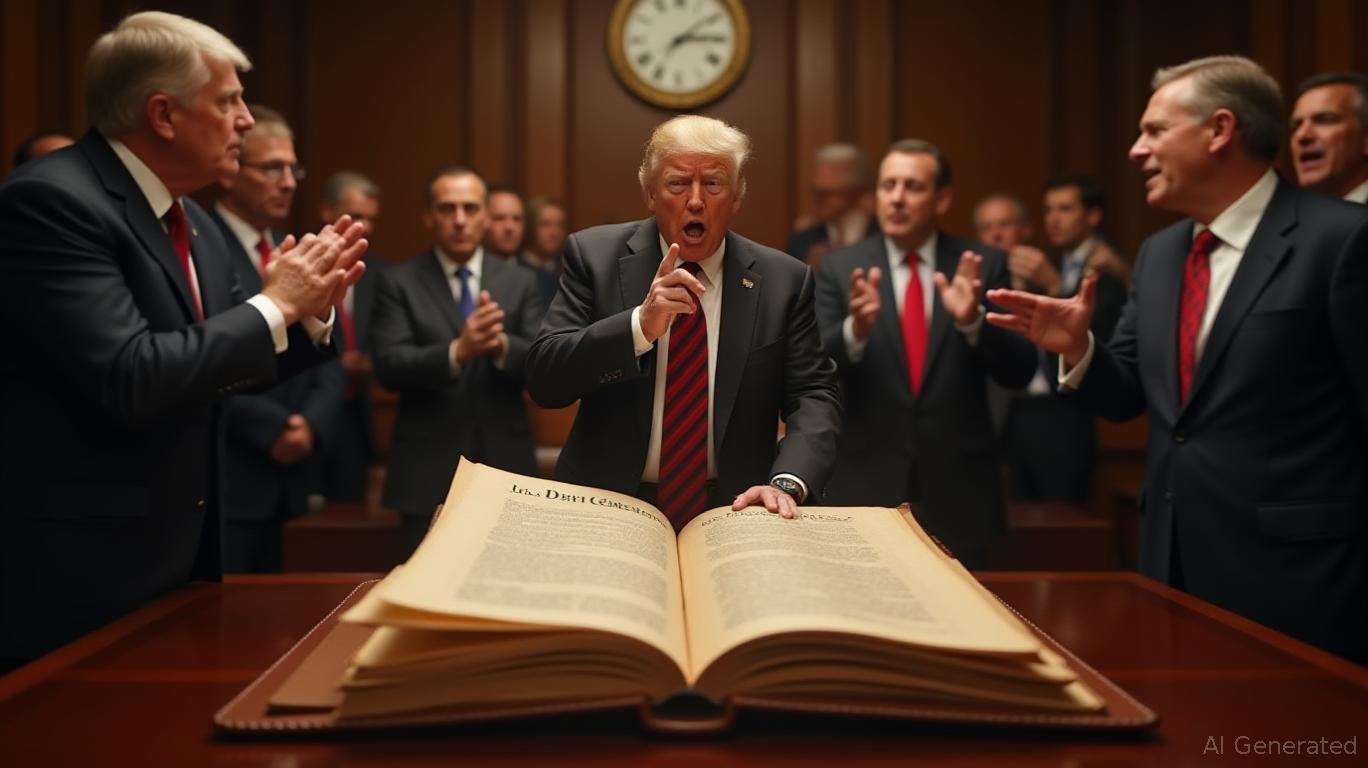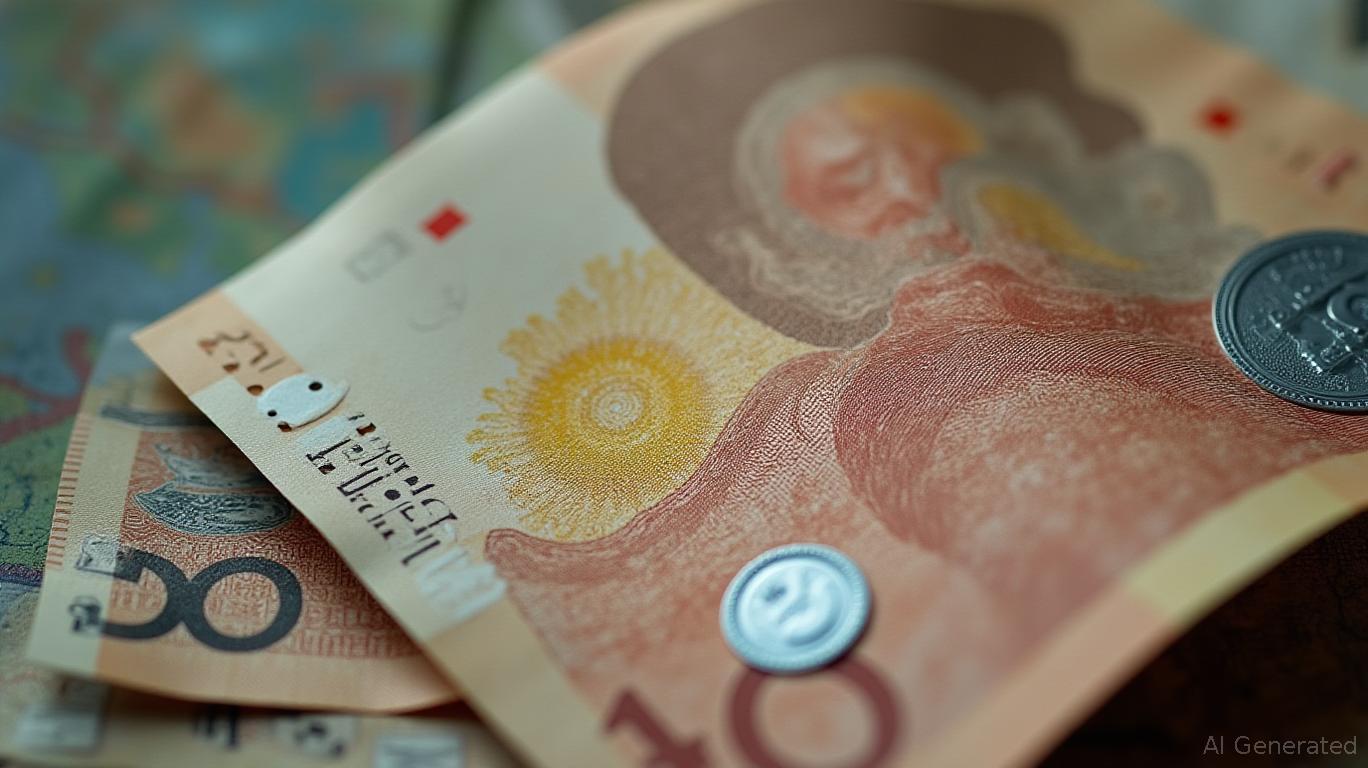Trump's Crypto Pardon Sparks Firestorm as Khanna Pushes for Trading Ban
- Rep. Ro Khanna (D-Calif.) proposes banning Trump, family, and Congress from crypto trading to address alleged "unprecedented" corruption, citing World Liberty Financial ties. - Trump's controversial pardon of Binance founder CZ Zhao, a foreign national convicted of U.S. money laundering violations, sparks bipartisan criticism and legal scrutiny. - Binance's $740,000 lobbying efforts in Washington, including payments to Trump-linked operatives, raise questions about the pardon's motivations and regulatory
Representative Ro Khanna (D-Calif.) has delivered a sharp rebuke of President Donald Trump’s involvement with cryptocurrency, accusing his administration of engaging in “unprecedented” self-enrichment and promising to propose a resolution that would bar the president, his relatives, and members of Congress from trading cryptocurrencies or accepting foreign funds, as reported by
Khanna, who has long criticized Trump’s financial conduct, accused the president of leveraging his position for “excessive” personal gain, pointing to Zhao’s investment in the Trump-endorsed stablecoin

During a press briefing, Trump justified his decision to pardon Zhao, stating he was told Zhao’s actions “did not even constitute a crime” and that the previous administration had “targeted” him, according to Cointelegraph. The pardon has ignited a political uproar, with Democratic figures such as Senator Elizabeth Warren (D-Mass.) denouncing it as favoritism. Meanwhile, Binance’s lobbying activities in Washington—including $450,000 paid to individuals linked to Trump and $290,000 to former SEC candidate Teresa Goody Guillén—have raised suspicions about the reasons behind the pardon, as detailed in a
This controversy highlights deeper disputes within the cryptocurrency industry. While Trump’s executive order to position the U.S. as a “crypto capital” has been welcomed by industry leaders like CZ, who vowed to “generate significant wealth for the nation,” critics argue that the pardon sets a precedent for leniency toward regulatory offenders, Cointelegraph noted. Legal experts also point out that a presidential pardon does not erase Zhao’s conviction, leaving his criminal record and potential civil liabilities intact, according to a
Khanna’s proposed resolution reflects increasing demands for openness in cryptocurrency policy. Having previously supported Bitcoin as a strategic reserve, the congressman described the ban as essential to avoid conflicts of interest, Benzinga reported. His office also emphasized USD1’s involvement in a $2 billion transaction between Abu Dhabi’s MGX and Binance earlier this year, further complicating the Trump family’s claims of financial independence, according to Benzinga.
The White House has not issued a statement regarding the resolution, while Binance expressed gratitude to Trump for “his leadership” in promoting cryptocurrency adoption. As debate over crypto regulation grows more heated, Khanna’s proposal marks a possible shift in congressional oversight, with Democrats using the issue to spotlight what they call Trump’s “damaging” financial behavior, Benzinga reported.
Disclaimer: The content of this article solely reflects the author's opinion and does not represent the platform in any capacity. This article is not intended to serve as a reference for making investment decisions.
You may also like
Solana News Today: Solana's Tightrope Walk: ETF Investments, Price Fluctuations, and Regulatory Challenges
- Solana attracts institutional investors via ETF inflows, Hong Kong regulatory approvals, and the Alpenglow upgrade targeting validator cost cuts. - SSK ETF sees $24M weekly inflows, while Hong Kong's first Solana ETF launches October 27, expanding global institutional access. - SOL price rebounds to $195 but faces $200 resistance; analysts highlight $220 as a key breakout threshold for further gains. - Alpenglow aims to slash 80% of validator fees by 2026, enhancing decentralization through lower entry b

Political Stalemate to Drive U.S. Debt Higher Than Italy and Greece by 2030
- U.S. public debt-to-GDP ratio will surpass Italy and Greece by 2030, per IMF forecasts, reaching 143% vs. 137% and 130%. - Trump-era tax cuts, $1T defense spending, and political gridlock drove deficits above 7% of GDP since 2025. - Italy/Greece reduced deficits via austerity and EU funds, while U.S. faces debt servicing costs exceeding education/transport budgets. - Analysts warn U.S. debt path is unsustainable without structural reforms, as political stalemate blocks spending cuts or tax hikes.

China's approach with the Digital Yuan seeks to transform the landscape of international finance
- PBOC establishes Beijing and Shanghai centers to advance digital yuan strategy, enhancing domestic infrastructure and global reach. - Digital yuan pilot transactions exceed 14.2 trillion yuan, supported by 225 million wallets, while PBOC enforces crypto bans to mitigate risks. - Dual-center model balances domestic innovation with international collaboration, expanding digital yuan adoption through commercial banks. - China’s strategy aims to reshape global CBDC perceptions, leveraging regulatory rigor an

U.S. Bets $40 Billion on Argentina's Economic Reforms as Peso Rallies and Poverty Rises
- Trump praised Argentina's Milei for a landslide election win, linking it to U.S. financial gains amid a 6% peso surge against the dollar. - U.S. Treasury's $20B currency swap and $40B total stake aim to stabilize Argentina's economy, despite 53% poverty rates and political instability risks. - Milei's austerity reforms face challenges: poverty deepening, congressional alliances needed, and potential peso collapse if reforms stall. - Markets reacted positively to the election, with Argentine bonds and sto
